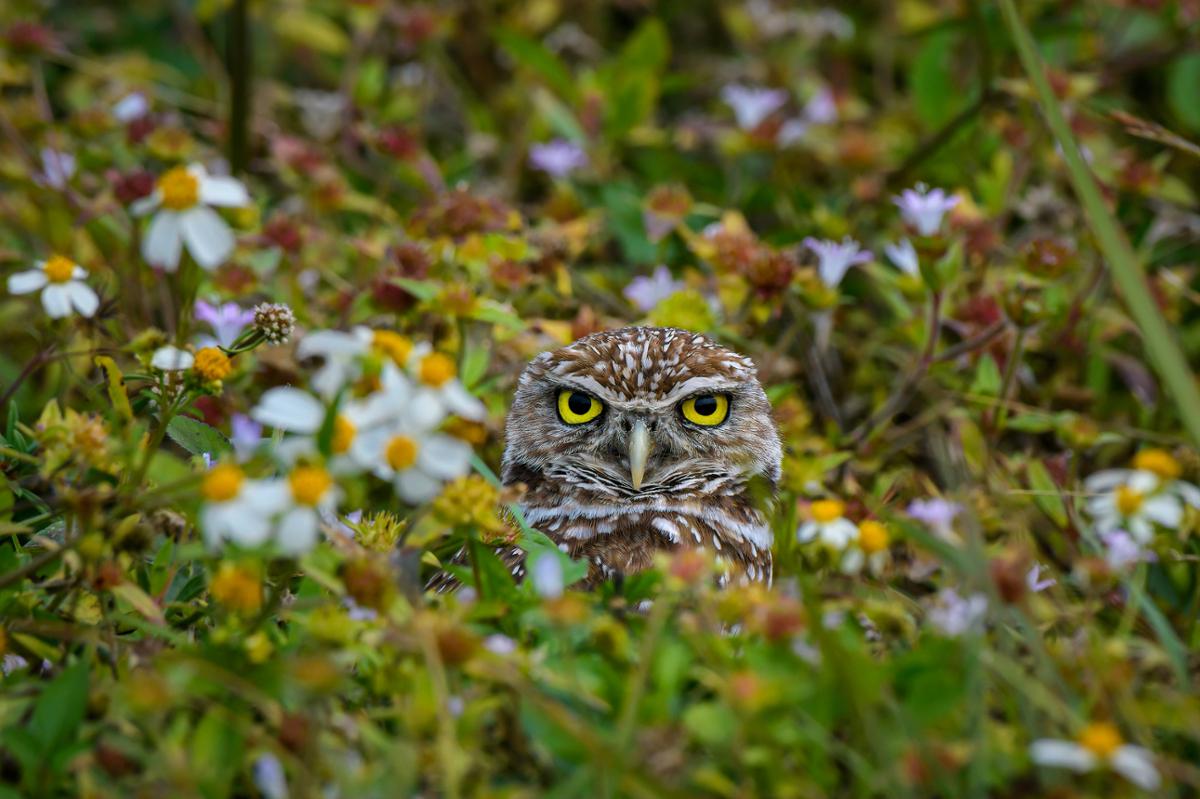Y: “A wise old owl lived in an oak. The more he saw the less he spoke.”
D: “The less he spoke the more he heard. Why can't we all be like that wise old bird?” If only I had a nickel for every time I heard the phrase, "wise old owl," but here's my question, Yaël: is there really anything behind that phrase? I mean do owls really do anything special, anything at all deserving of such a reputation?
Y: Well, Don, I don't know much about owls, but if it's just one special thing you're looking for that makes owls deserving of their esteemed reputation, I do have something for you. Burrowing owls use dung as a tool to lure dung beetle prey.
D: I'm aware that tool use is associated with intelligence, but I never heard of anyone or anything using dung as a tool.
Y: Odd perhaps, but a tool is a tool. These owls surround their nests with mammal dung in order to lure dung beetles into their hungry mouths.
D: There's no other possible explanation, such as maybe the owls are just filthy creatures?
Y: Nope. Scientists tested whether the owls could be using the dung for other purposes, such as masking the scent of their nests, but the presence of dung offered no significant protection from predators. What scientists could confirm is that if they took the dung away from an owl's nest, it consumed about ten times fewer dung beetles.
D: Wow. Well, as unappealing as the prospect of wanting to eat lots of dung beetles is to me, I guess I have to say that this trick illustrates that owls are indeed wise.
Y: This Moment of Science comes from Indiana University.
D: There are thousands more Moments of Science on our Web site at a-moment-of-science.org, where you can also view videos and sign up for podcasts.
D: I'm Don Glass,
Y: and I’m Yaël Ksander.










